Thelma Schoonmaker – Scorsese’s Editor
Last Updated – December 2019
Thelma Schoonmaker is one of the industry’s most famous editors and one of it’s most celebrated. She’s also worked with director Martin Scorsese for well over forty years, editing all of his films since Raging Bull in 1981. She was married to director Michael Powell until his death at 90.
According to Wikipedia she holds the record for the most Oscar wins for editing (Raging Bull, The Departed, The Aviator) and second place (to Michael Kahn, Spielberg’s editor) for most Oscar nominations (7) – which she is tied with Barbara McLean, who also has 7 nominations.
In this ‘sister post’ to my review of Martin Scorses’s Directing Masterclass, I thought I’d bring together some of the best articles and interviews I could find on Thelma’s incredible work editing some of the most iconic films of the last few decades.
The opening video is a nicely edited montage from the Eddie Awards tribute reel in 2017.
In this delightfully creative short documentary from The Royal Ocean Film Society, you can hear from the lady herself what it’s like to be a legendary editor and work with Scorsese for most of her career.
Thelma and The Irishman
In this short promo piece from Netflix you can get a snapshot of Thelma and Marty’s working relationship and their process of editing their films together. It’s pretty brief, but it’s nice to see her getting some recognition from Netflix too.
There are also similar shorts on the de-aging sound design (above), Rodrigo Prieto’s cinematography, Steve Zaillian’s screenwriting and every day life art direction, spanning 50 years through hair and make up and a few others.
Iain Blair writing for Post Perspective has a a good chat with Thelma on the editing of the 3.5 hour opus that is The Irishman in this interview.
They cover everything from maintaining the pace over the runtime, handling the de-aging process, Thelma’s preference for cutting on Lightworks and some of the specific stylistic elements within the film.
Could you talk about the pacing, and how you and Marty kept its momentum going?
Scorsese was determined that The Irishman would have a slower pace than many films today. He gave the film a deceptive simplicity.
Interestingly, our first audiences had no problem with this — they became gripped by the characters and kept saying they didn’t mind the length and loved the pace. Many of them said they wanted to see the film again right away.
An informative and quick read!
Video essayist Thomas Flight compares and contrasts Goodfella‘s and The Irishman in this exploration of how Scorsese has built upon some of the same techniques with very different thematic results.
Returning to the original Post
Intriguingly she’s one of those few editors who likes to cut on Lightworks, which you can actually download for free yourself.
One of the things I like about Lightworks is that it has a controller like we used to have on flatbed editing machines, instead of a keyboard). The controller allows you to scrub along the sound very slowly, which you didn’t use to be able to do in Avid. I think you can now.
And also Lightworks has a phenomenal sync reference system which means that if I’m cutting with 24 sound tracks I can do some experiments and throw myself out of sync during the experiments without worrying, because on the right side of the timeline Lightworks will tell me exactly how many frames out of sync I am on each of the 24 tracks.
I can be three frames out of sync on track one and 24 frames out of sync on track fifteen and seven frames out of sync on track eight. When I’m done making the new edits I can then open up the relevant splices and click the mouse and it will pull all those tracks into sync again.
Not having to worry about sync gives me great freedom.
This quote comes from Steve Hullfish’s excellent interview with Thelma, focusing on the film Silence, and the editing of it, with quite a few insights into the sound design too. An excellent read. You can also get a description of what’s going on in the Lightworks timeline pictured above from Schoonmaker’s longtime first assistant and associate editor, Scott Brock.
If you want to spend 13 minutes inside the edit suite with Thelma and Marty, including a visit from Michael Powell, then this little slice of ‘cinema vérité is what you want to watch. Stick with it, it’s worth it.
You get to see why they eat lunch in the edit suite and why the sofa doesn’t fit very well. Plus other stuff! But it’s great to see their interaction as they edit a scene together.
Thelma Schoonmaker on Film Editing
DP/30’s interviews with filmmakers are always worth a watch and that’s very true of these gems with Thelma Schoonmaker. The first revolves around The Wolf of Wall Street, whilst the second focuses on Hugo. But the conversation always tends to drift and explore new avenues, so you get a whole lot more.
So it was a different rhythm than most of our films. It was this rush and then stop, and then rush and then stop. But I’m hoping most people go with it.
So that was a little bit of work to try and get the rhythm right. And the improvisations of course were wonderful to work with and they’re very hard because they don’t match always, but I love that so it wasn’t a negative struggle or anything. It was just a lot of hard work.
The Dissolve also has a decent interview with Thelma on the topic of The Wolf of Wall Street, which you can read here.
Comedy cutting is a real skill. I learned a lot when we were doing The King Of Comedy, from the timing instructions that Jerry Lewis was giving to other actors.
The slight beat, maybe two or three seconds, before you answer a question, or the beat you put in the middle of a line, is all where comedy lies.
Some of the greatest comedians, like Gracie Allen, who I adored, have the greatest senses of timing.
You have to learn how to make comedy work….
In this second DP/30 interview Thelma discusses numerous films, including Shutter Island and Hugo. They also discuss the difference between 2D and 3D, working with VFX and the changes to their workflow after the shift from film to digital and a whole bunch more.
I have the best job in the world, collaborating with Marty is so special, anyone who works with him will tell you that. His standards are so high, his enthusiasm is so strong, and you become infected with it, it’s a great joy.
So I have the best job in the world as far as I’m concerned.I think Marty’s always pushing me actually. He’s always a few steps a head of me.
Update
In this recent Bafta Guru interview, Thelma walks through her career in film editing and how she got her start in the industry and first met Scorsese.
When I met him (Marty), he truly became the reason I became a filmmaker. He trained me and taught me everything I’ve ever known about film editing.
And his deep passionate love of the history of film is something he infected me with.
And then he actually introduced me to my husband Michael Powell. So I’ve had all the luck anyone can have in the world! (Laughs)
There’s a nice little article on MovieMaker.com in which Thelma shares a few life lessons from the edit suite, which is worth a read.
I learned from Michael Powell to never talk down to our audiences—to never “dumb down” a movie. He said that audiences are actually way ahead of us and as filmmakers, we must try to be ahead of them—to surprise them and make them feel our movies, not tell them what to think.
Alec Baldwin (yes Alec Baldwin) has an insightful interview with Thelma on her editing process from WNYC Studios. Thelma breaks down the specifics of her and Marty’s editing process at about 7.30 mins in.
The most important time for me is when he’s looking at the dailies. I look at the footage first, as soon as it comes in to make sure it’s all OK and nothing is missing.
But what he does in dailies is really fascinating… because he’s very tough on himself. He constantly talks to me during the dailies; “I like that, I don’t like that, I think I’m going to get better on Take 7…” and I’m also telling him what I think. He wants me to look at it cold and tell him if it works.
From those incredibly rich reactions of his, I being to make selects and I make the first cut before he comes in – when he’s done shooting.
From that point we do all of the 12 different edits of the movie together… that’s what we prefer to do if we can.
It’s a really rich interview that’s well worth a listen!
In this clip from Manhattan Edit Workshop, Thelma discusses the challenge of editing a hugely improvised scene from Raging Bull.
My job as an editor was to take the brilliant improvisation between De Niro and Joe Pesci but all shot first for two hours on DeNiro and then for 2 hours on Pesci and try and make it seem like a scene. And it was extremely difficult.
There’s a nice write up on Indiewire.com of a masterclass that Thelma gave at the Tribeca Film Festival in 2014, which focused on editing Raging Bull. Here’s another nugget about the same scene she discusses above.
“It took almost a month for me to wrangle the footage into shape…and it was extremely hot and the babies kept crying.”
Schoonmaker also showed a funny outtake in which Pesci and De Niro try to keep their concentration and keep the babies from fidgeting or crying, with great difficulty.
Thelma won the Golden Lion in 2014 for The Departed, an award normally given to Directors, which she graciously tried to accept with Scorsese, as they ‘work so closely together’, but the festival pointed out that he already has a Golden Lion.
Natalie from Mentorless.com has a nice write up on this video in which she pulled out this insightful quote, among others:
Rhythm, pace, and drama are something that an editor has to know how to pull out of a movie.
And you have to have a good sense of acting which is why Scorsese has been such a great teacher for me because he’s a brilliant director of actors, he has a very high standard for what he will accept from an actor’s performance and I have learned that from him, it’s very important.
Natalie also has another article that’s worth a read, pulling out some key insights from a talk that Thelma gave at the Rochester Film Festival.
Thelma Schoonmaker on Scorsese
It’s pretty tricky to disentangle Thelma talking about editing from Thelma talking about working with ‘Marty’ (as she calls him). But in this video from 1993 you get a great interview with her and a ton of insights about her thoughts on his editing process.
My director is a wonderful editing director. Some editors get very frustrated because they’re working with a director who doesn’t know how to shoot a film to make it edit properly and they have to come in and try and save the film.
So a lot of editors in Hollywood get very angry and frustrated because they feel they don’t get enough credit. I’m in the reverse position, I have a director who has a fantastic sense of editing.
Editing is his favourite thing in filmmaking, he’s often said.
In this run down of Thelma’s seven favourite moments from working on Scorsese’s films she shares some nice insights into their working process.
Working on Wolf of Wall Street was tremendous fun because Scorsese realised right away he had a group of actors who were brilliant and improvisation. So he made a very daring decision to let them run free, to a certain extent, as they were shooting and great things came out of it.
I love cutting improvisation because it’s like putting a puzzle together, and that’s what its like working with an improvised scene because you have to find a way to make that work dramatically as a scene, and I love doing that.
If you want to learn more from Scorsese check out my review of his brand new Masterclass on Filmmaking here.
Update
This is a really nice behind the scenes look at the editing of Goodfellas, and handling Scorsese’s volcanic mood swings.
Thelma Schoonmaker – Editing Commentaries
There are a couple of films in which Thelma delivers a DVD commentary alongside numerous other artists. Here are a couple I could find online.
As you can see from the run-time’s Scorsese makes long films!
There’s also an interesting podcast with 20/20 Awards.org which focuses on the editing of Goodfellas.
Let me know in the comments if you find any other great interviews, links or videos to include in this post!

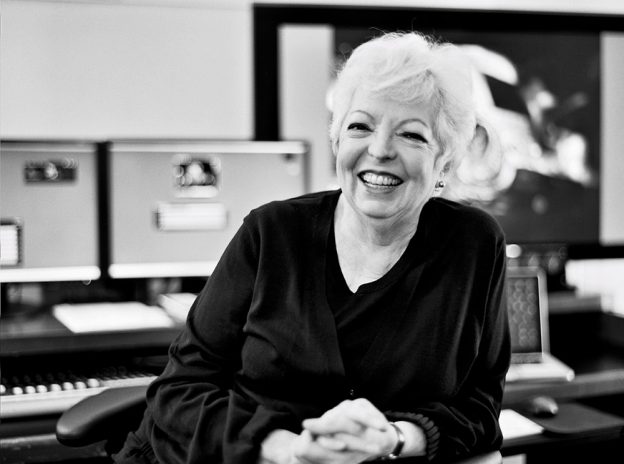
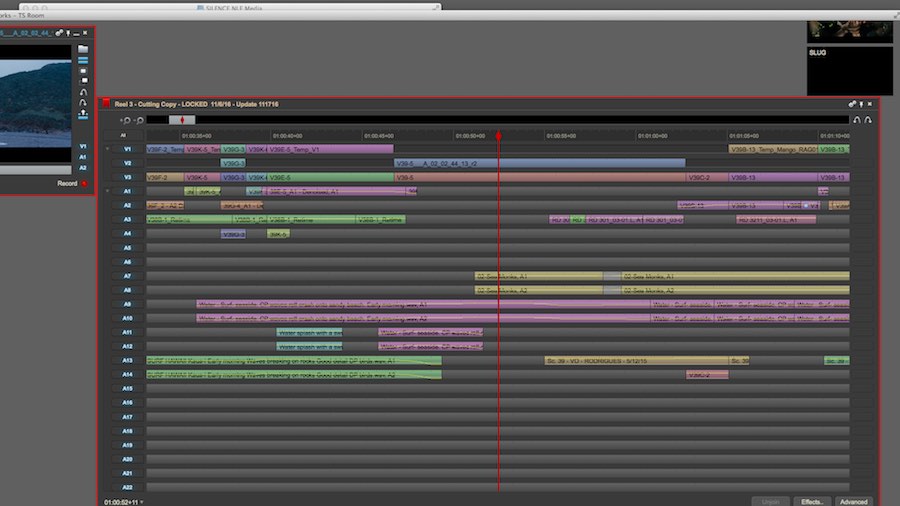
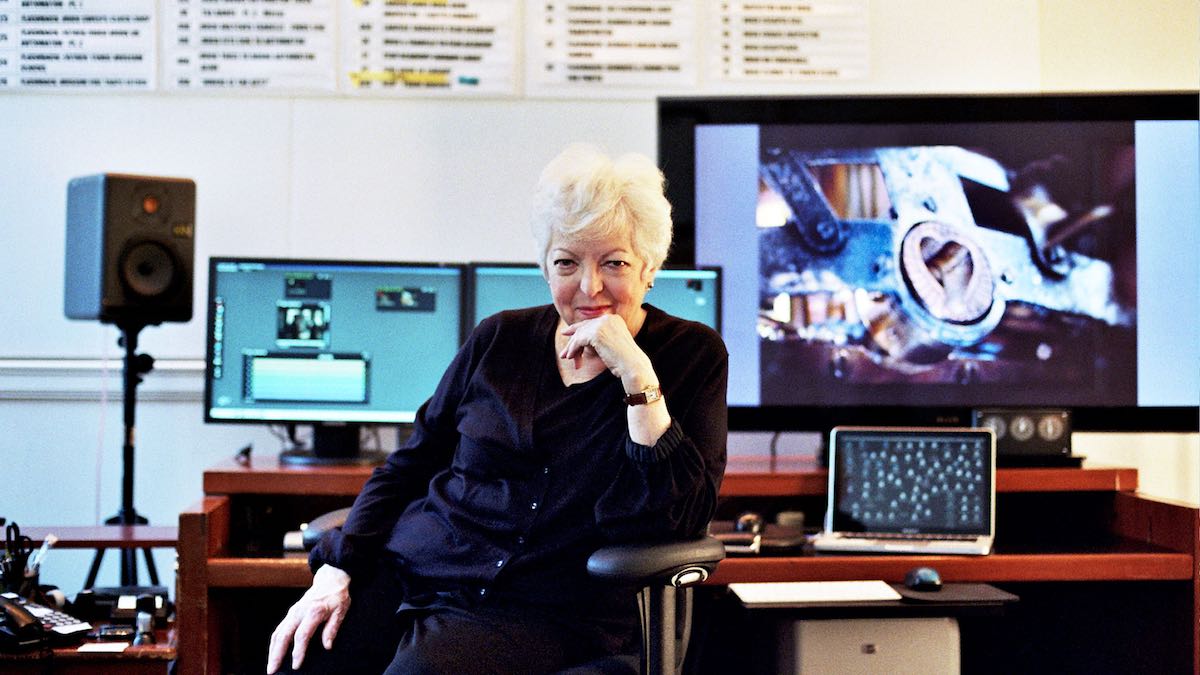

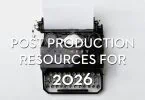

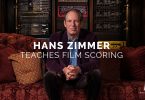
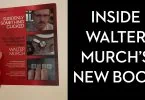
Even with all the massive recent development of DaVinci Resolve and it’s push toward a true NLE, I still prefer Lightworks as an Editor though it’s real power comes through it’s interconnection with a USB hardware panel. Here’s a short video I made demonstrating LW compared with Resolve: https://www.youtube.com/watch?v=EWDeGHV8-fc&t=3s